Securing Anies Baswedan’s Support
Pramono Anung successfully secured Anies Baswedan’s support in the Jakarta gubernatorial election. There seems to be a political deal ahead of 2029.
maaf email atau password anda salah

Pramono Anung successfully secured Anies Baswedan’s support in the Jakarta gubernatorial election. There seems to be a political deal ahead of 2029.
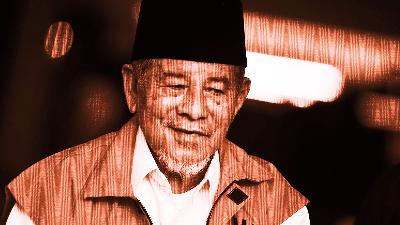
The term “Medan Block” emerged during the trial of former North Maluku Governor, Abdul Gani Kasuba. Medan Block is believed to refer to pre-allocated nickel mining concessions in Halmahera.

Bobby Nasution is suspected of managing the Medan Block nickel mine since 2021. He met with Abdul Gani Kasuba before becoming the Mayor of Medan.
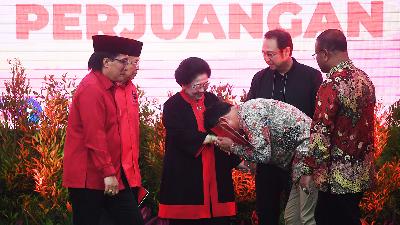
The PDI-P will be nominating Anies Baswedan in the Jakarta gubernatorial election. A popular candidate against Jokowi’s coalition.

The opportunity for Anies Baswedan to contest the Jakarta gubernatorial election is slipping away after the coalition of parties supporting him fell apart. There is a guerrilla from the Palace.
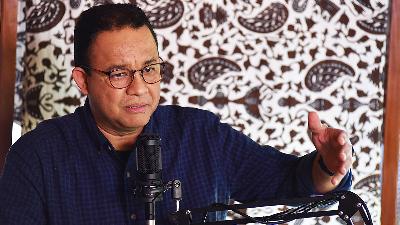
An exclusive Tempo interview with Anies Baswedan regarding his chances to run in the Jakarta regional head election.

Jokowi and Prabowo’s coalition are maneuvering to thwart Anies Baswedan’s candidacy in the Jakarta regional head election. Cabinet posts are being offered as inducements.

Chances for Anies Baswedan to run in the Jakarta regional head election are beginning to open up. A number of political parties support Prabowo Subianto intend to nominate Anies.

Anies Baswedan talks about the campaign. He admits there are talks with the Ganjar-Mahfud team.

Anies Baswedan is campaigning aggressively through TikTok. It is forbidden to talk about politics and campaigns.

Several high-ranking veterans formerly supporters of Jokowi and Prabowo switched their allegiance to Anies Baswedan. Several officers held disappointment.
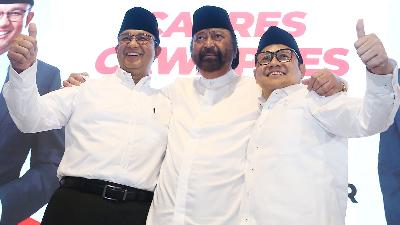
Anies Baswedan choses Muhaimin Iskandar to be his vice-presidential running mate. Agus Harimurti Yudhoyono is eliminated in the final turn.

Corruption Eradication Commission (KPK) investigator, Novel Baswedan, has doubts about his alleged assailant Brig. Rahmat Kadir Mahulette’s statement, calling him a traitor.

MEDAN Mayor Tengku Dzulmi Eldin’s alleged bribery case has roped in a number of parties, from bureaucrats to businessmen.

THE Civil Society Coalition has worked with Change.org to launch a petition demanding President Joko Widodo to form a joint fact-finding team (TGPF) to investigate the attack using acid against Corruption Eradication Commission (KPK) investigator Novel Baswedan.

Anies Baswedan took advantage of the final week of the campaign to emphasize his rejection of land reclamation work on the north shore of Jakarta. On Wednesday last week, Anies, who is running for the office of the Jakarta governor, endorsed by the Gerindra Party and Justice and Prosperity Party (PKS) went to the dock in Cilincing, North Jakarta. He took part in the parade with the theme "Fishermen Reject Land Reclamation."
There were 150 ships there, each carrying 10 fishermen, which sailed in a convoy on Jakarta Bay, from Kalibaru dock to Cilincing. These fishing boats visited Island G, an island where work had once stopped, which is being worked on by the Agung Podomoro Land company. They put up a banner there which read "Reject Land Reclamation."

Friday last week was a busy day for 47-year-old Anies Baswedan, who began his day's activities from early morning. His schedule was full and it did not end until nearly midnight. "I haven't slept much," said Anies.
That day, Anies, the former education and culture minister, was selected a candidate in the Jakarta gubernatorial election, by the Gerindra Party and the Justice and Prosperity Party (PKS). His running mate is Sandiaga Uno, a Gerindra member and businessman. There was a series of events he had to attend following his nomination: the public declaration of his candidacy, registration at the Jakarta General Elections Commission (KPUD) and political meetings. At the end of that Friday, Tempo reporter Prihandoko had a chance to interview Anies about his nomination

The huge education budget20 percent of the total state budgetdemands a significant improvement in the quality of the national education system, something that Indonesians have been yearning for years. Now, it is up to Education and Culture Minister Anies Baswedan to respond to those demands.
The first step that Anies has started is publicizing all data on public education. The Education Balance Sheet publication contains information that until recently was not available to the public, such as the number of students in schools, the proportion of students to teachers, the number of damaged and broken-down schools, the quality of teachers based on teacher competence evaluations, the different education budgets between national and regional budgets, the budget allocation per student and the number of accredited schools.

It is increasingly clear that the charges against Corruption Eradication Commission (KPK) investigator Novel Baswedan were mostly fabricated. The National Ombudsman found suspected fraud in the police investigation. The prosecution's case against Novel, concluded the Ombudsman, should not even have qualified for a court hearing.
Irregularities were first suspected when a 2004 resolved case involving Novel was regurgitated. He was, at the time, posted in a Bengkulu district police precinct and charged with allegedly allowing his subordinates to torture some bird-nest thieves. The case should have been closed after Novel was given a strong warning that same year. Unfortunately, the police dug it up when Novel, as a KPK investigator, exposed the corruption inside the National Police traffic division.

ON the first day that Anies Baswedan began his job as minister for culture and elementary and secondary education a year ago, he knew there would be piles of work ahead of him. Among the many issues that needed to be sorted out was the scarcity of teachers in Indonesia's remote areas. Yet, statistically, there should have been enough teachers to go around. The student-teacher ratio is around 16 to 1. "That's an excess, while in South Korea, the ratio is 30 to 1. Ideally it should be 25 to 1," said Anies, admitting that the problem in Indonesia was one of unequal distribution. In some places such as Papua, the ratio dropped significantly to 75 students for every teacher. So, in May this year, the education ministry initiated the Guru Garis Depan (Frontline Teachers ) program to address the shortage of teachers in the outer parts of the country. So far, 798 teachers have been sent out to teach at 28 regencies. Next year, the number is expected to increase to 3,500. Anies discussed the Frontline Teachers initiative with Tempo English reporters Sadika Hamid, Syari Fani and Amanda Siddharta. Excerpts:

PHOTOGRAPHS of elementary school students hang on the walls of the Ki Hajar Dewantara Building of the Elementary and Secondary Education and Culture Ministry in Jakarta. Most of them show children in remote areas, wearing shabby uniforms but genuine smiles on their faces. The photographs were put up at the request of the new minister, Anies Baswedan, who asked that they be hung everywhere, including in all meeting rooms. "So that when we meet, their faces will remind us that we work for them," said Anies, in his office last week.
Barely two months into his new assignment, Anies has created a buzz in Indonesia's education sector. He changed the function of national school examinations from determining a student's passing grade to merely a tool to measure the quality of education. A recent bombshell was when Anies halted the Curriculum 2013 and reverted to the Curriculum 2006 on December 6. He rejected the new curriculum because he noticed that teachers and schools were not ready to use it. "It's like being told to suddenly switch to an iPhone when you're used to using BlackBerry," Anies explained.

The Special 88 Detachment has been deployed in pursuit of the Medan Bank CIMB robbers. They are suspected of having links to former GAM members and other groups.

The Medan District Court has rejected Adelin Lis’s defense. Forestry Minister Kaban will be presented as a witness.

The High Court is investigating six Medan District Court judges on charges of accepting bribes. However, they have only been suspended from duty pending further inquiry.

This is the testimony of those involved in a 1998 bomb scare in Medan. They say they were obeying orders from an intelligence officer.

WE, a number of occupants of Amanila Residence in Rangkapan Jaya, Depok, West Java, would like to complain the quality of the houses we have purchased from Nauman Landmark Group.

Peculiarities in a project tender to computerize the Attorney General's Office (AGO) worth a hefty Rp200 billion have come to light. As the tender involves Spanish companies, Madrid has started to take a hand in the matter.

The government’s economic policies fail to inspire investor confidence, leading to a turbulent time in the market ahead

A subsidiary of the peer-to-peer lending platform KoinWorks falls victim to an alleged fraud, resulting in a loss of Rp365 billion. Lenders are now threatening legal action.

Amid rampant fish poaching in Indonesian waters, traditional communities in Maluku enforce sasi, a practice that protects the seas and coasts.

Disobedience has a price. The cost of civility is enormous.

The investigation into the Communication and Digital Affairs Ministry employees backing online gambling is expanded to include many people. Ill-gotten gains from a political operation.

The presence of Hashim Djojohadikusumo at COP29 in Azerbaijan was considered as bearing a conflict of interests. He was promoting the business of Arsari Group.
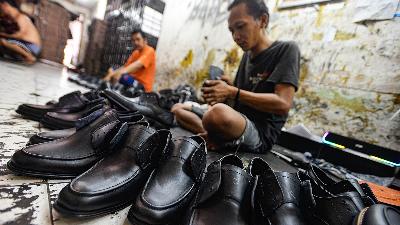
The disbursement of People’s Business Credit faces numerous challenges. Farmers and small business owners are vulnerable to loan sharks and middlemen.
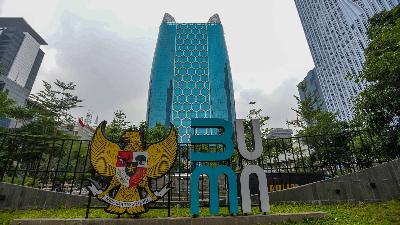
The plan for a super-holding for state-owned enterprises dates back to the New Order era. The SOEs Ministry will be replaced by a giant corporation.

With the Supreme Court’s judicial mafia, when one branch is lopped off, another 10 grow in its place. It needs to be comprehensively cleaned up.

The Supreme Court dismissed three judges suspected of accepting bribes in the Ronald Tannur case. This adversely impacts efforts to improve the judiciary.

Judicial Commission Chair Amzulian Rifai on the corruption in judicial institution involving judges.

Driven by corporate demand, helicopter business opportunities continue to grow. Operators are increasingly expanding their fleets.

There is an increasingly real threat to Indonesia’s biodiversity. It cannot be overcome through empty slogans at international forums.

KPU Chair Mochammad Afifuddin on turbulence within his institution following the dismissal of Hasyim Asy’ari, and the Constitutional Court’s decision on the regional head elections.
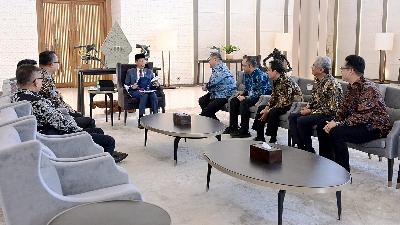
Various parties from the National Police Chief to the State Palace are accused of interfering in the KPK leadership candidates selection process. The candidates are divided into four clusters.

Tempo’s interview with Minister of Communication and Informatics Budi Arie Setiadi about Jokowi’s campaign before the end of his tenure.

As President Jokowi's term neared its end, instructions were given to promote the government's achievements, and billions of rupiah in contracts were offered to the media.
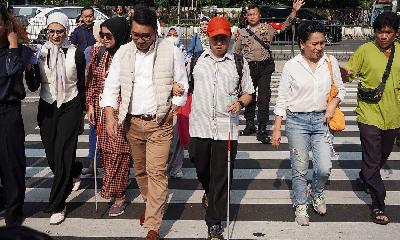
Jakarta governor and deputy governor candidates promise improvements in inclusive public transportation.
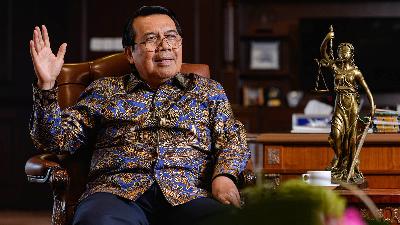
Supreme Court Chief Justice Muhammad Syarifuddin uses artificial intelligence to handle cases. Case brokers continue to be a threat.

Media companies are experiencing upheaval due to the rapid changes in the business landscape. The industry is moving towards a new equilibrium.

Using a variety of pretexts, the political parties replace elected legislative candidates. This is a betrayal of the people’s choice.

Hendra Sabarudin’s drug network distributed methamphetamine from Tarakan prison starting in 2017, allegedly aided by police and prison guards.

The government plans to dredge 17.6 billion cubic meters of sea sand and sediment, altering the landscape and destroying marine life.
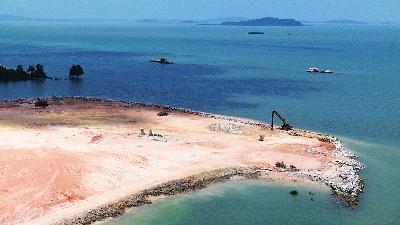
The government designated a number of areas as zones for cleaning sediment and sea sand.

Anindya Bakrie ousts Arsjad Rasjid from the position of General Chair of the Indonesian Chamber of Commerce and Industry (Kadin). The Palace’s support shifted.

Anindya Bakrie ousted Arsjad Rasjid as the Chair of the Indonesian Chamber of Commerce and Industry (Kadin). The organization is becoming like a political party and enjoys large funds coming in from overseas.

Gubernatorial candidates are trying to win over the votes of Anies Baswedan supporters in the Jakarta regional election. Jokowi reportedly shifted his support.

Pramono Anung and Ridwan Kamil shed light on the dynamics surrounding their appointments as Jakarta gubernatorial candidates.

Police uncover baby trafficking syndicate operating in Java-Bali since 2023. Five babies were already sold.
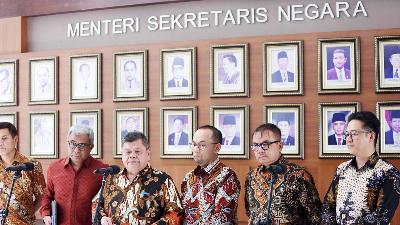
News summary on the conflict of interest of KPK leadership candidates and 44 ministries in Prabowo’s government.
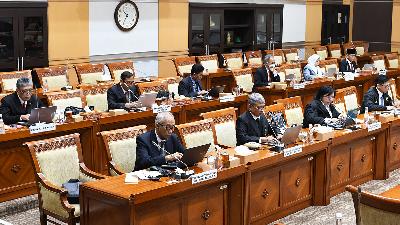
Commission III of the House of Representatives rejected all the Supreme Court judge candidates proposed by the Judicial Commission. The rejection allegedly was due to their favored candidate failed to pass.
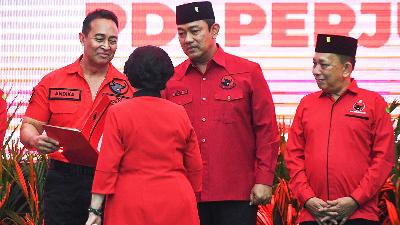
The Indonesian Democratic Party of Struggle (PDIP) strives to counter candidates supported by the Palace. It is an early projection for the 2029 General Elections.

BRIN is designing the Peluit-40 nuclear reactor to replace diesel power plants, claiming it to be safer.

The Bocor Alus Politik podcast receives the Udin Award that we dedicate to our viewers and readers.

Tommy Hermawan Lo’s name emerges following the mention of Mr. T in online gambling that involves human trafficking case. He is a director at a casino management company.
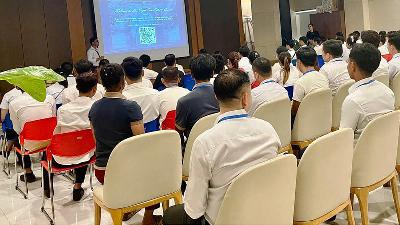
Victims of human trafficking for online gambling and scamming in Cambodia claimed of being forced to work 12-hour shifts and being beaten. Recruitment is still ongoing.

The battle in the presidential election is set to continue in regional head elections. The PDI-P is determined to challenge President Joko Widodo’s candidates.

Personal protective equipment corruption suspect, Budi Sylvana, denied inflicting up to Rp300 billion of losses to the state. He revealed the roles of other officials in the case.

Muhammadiyah follows Nahdlatul Ulama’s step to accept mining concession offer from the government. Muhammadiyah General Chair Haedar Nashir explains about it.
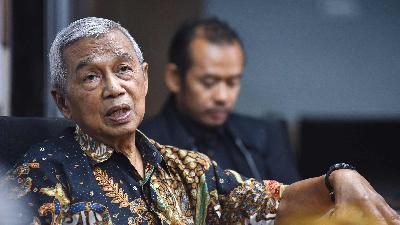
Muhammadiyah accepts the government’s mining concession offer. Many members are against it. Busyro Muqoddas, Chair of Muhammadiyah’s Law and Human Rights Council explains.

Muhammadiyah cadres and administrators are divided in their response to the mining concession. There are whispers from the government and the entrepreneurs.

Retno Marsudi dismissed the idea that the government is merely meddling foreign affairs. She emphasized that Indonesia is a trusted partner on the international stage.
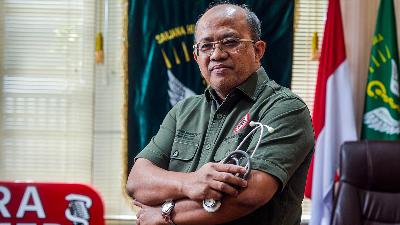
Chair of IDI, Mohammad Adib Khumaidi, discusses the polemic over the plan to allow foreign doctors to practice in Indonesia. He emphasizes stringent regulations are necessary.

Communication and Informatics Minister Budi Arie explains the cyberattack on the Temporary National Data Center. He dismisses allegations of negligence.

Infinite Earth responds regarding the revocation of Rimba Raya Conservation’s ecosystem restoration permit.

There will be a wave of layoffs at Tokopedia as a result of inefficient practices. This is the result of government policy rife with conflicts of interest.

The PDI-P is preparing to replace Hasto Kristiyanto after he was questioned by the KPK in the Harun Masiku case. They are wary of the Palace’s interference.

The founders of GoTo and Tokopedia sold their shares. New investors now have control of ownership.

Tokopedia made significant cuts in its workforce following its business consolidation with TikTok. A consequence of inefficient business operation.

Muhammadiyah’s business networks cover various sectors, from education to financial services. It seeks to create a closed economic ecosystem.

Muhammadiyah withdrew trillions of rupiah from Bank Syariah Indonesia. It was the accumulation of various problems, from operational matters to appointment of commissioners.
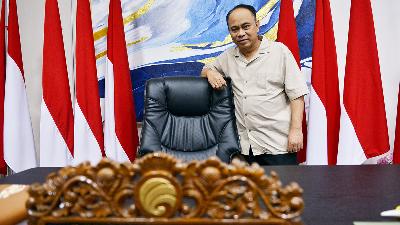
Communication and Informatics Minister Budi Arie Setiadi talks about the polemic over the planned revision of the Broadcasting Law and the Starlink Internet service.

Narendra Modi is likely to serve his third term as the Prime Minister of India. His campaigns are based on populism and religion.

The fintech lending business is increasingly losing steam. Returns continue to decline while fund owners are opting for other investment portfolios.

Tourism and Creative Economy Minister Sandiaga Salahuddin Uno assures that the tourism fee will not be imposed on plane tickets.
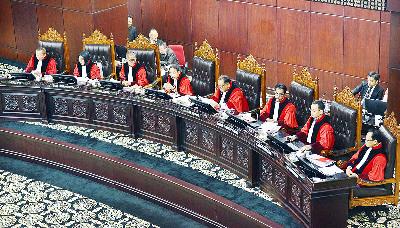
The Constitutional Court rejected lawsuits disputing the results of the 2024 presidential election. The option of disqualifying Gibran was discussed in a meeting of the judges.

Foreign Affairs Minister Retno Marsudi explains the Gaza war and the Iran-Israel conflict with its impact on Indonesia’s economy.
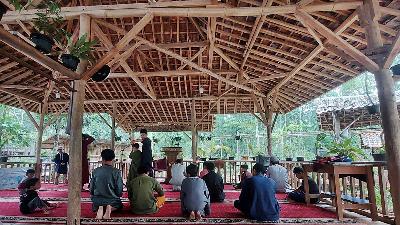
Islamic boarding schools (pesantren) cannot be closed even if they do not have a license from the government. There is no protection from the Ministry of Religious Affairs if legal problems arise.

The Rabithah Alawiyah organization is in charge of recording and preserving the line of descent of the Alawiyyin in Indonesia. Seven books from Yemen serve as their guide.

Several companies are applying for permits to utilize sediment, including sea sand. Large corporations use landfills for land reclamation areas.

Indigenous people are taking legal action against the President and the DPR for delaying deliberations of a bill. It has taken second place to the interests of investors.
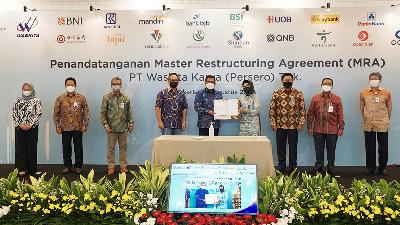
State banks stop distributing loans to state construction companies. Government assignment projects are burdening banks.

The government opens the option of switching energy subsidies for the free lunch program. This threatens poor households.

The government issues a regulation to develop the game industry. There will be a special funding agency.
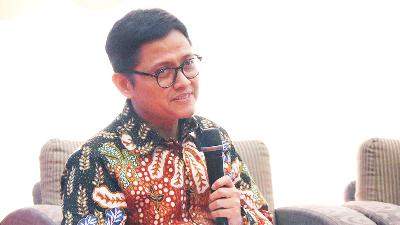
Discussions of the Asset Recovery Draft Law is stagnating in the DPR. It is key to preventing money laundering.

TikTok Shop’s acquisition of Tokopedia changes the Indonesian business map. It is not clear how small and medium enterprises will be protected.
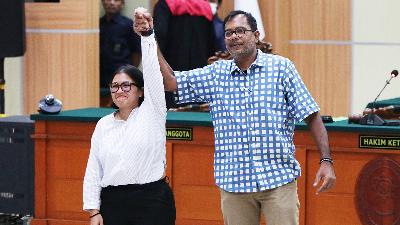
The prosecutor persists in filing a cassation against the acquittal of Haris Azhar and Fatia Maulidiyanti. It is a threat to the freedom of expression.

GoTo CEO Patrick Waluyo reveals the story behind the selling of Tokopedia shares to TikTok. How much profit did GoTo get?

The integration of TikTok Shop with Tokopedia will reinforce GoTo’s business. Indonesia’s e-commerce competition landscape is changing.

The presidential and vice-presidential candidates are relying entirely on gimmicks to exploit the emotions of the people. This moves the campaign away from substantive discussions.

Do the presidential candidates succeed in attracting young voters with social media gimmicks?

Budiman Sudjatmiko persuades other activists to support Prabowo Subianto. He claims he is not motivated by money.

How does the Indonesian Solidarity Party get its funding? Is the aid from conglomerate bosses like Djarum’s owner true?

Presidential Chief of Staff Moeldoko is writing regarding his alleged interference in electric vehicle policy over Wuling’s SNI certification.

Post-Firli Bahuri, the Corruption Eradication Commission (KPK) is still walking backward toward its grave. A radical reform is needed.

The presidential candidates’ campaign teams are an illustration of the type of government they would form if elected. Businesspeople have a central role.
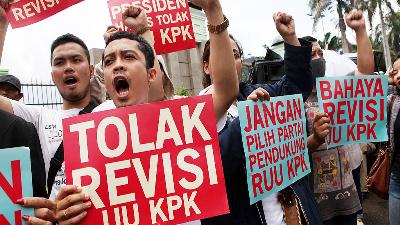
The Corruption Eradication Commission is no longer independent ever since it became part of the executive body. The fruit of the revised KPK Law.
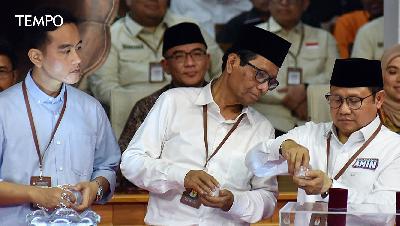
In Indonesia, presidential candidate debates are planned as bogus performances. There is no in-depth discussion of the issues.

Yet again, a member of the Supreme Audit Agency is involved in corruption. The system for selecting these state auditors is very poor.

Judicial Commission Chairman Amzulian Rifai explains the boundaries of his authority in dealing with judges, and the Judicial Commission Bill.
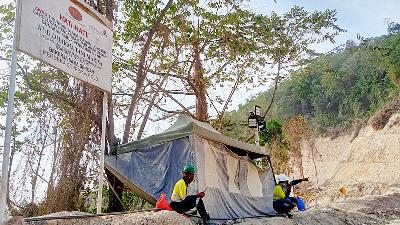
Sandiaga Uno and Garibaldi Thohir’s company is in conflict with local miners. The amount of compensation is considered inadequate.

Having no democratic legitimacy, Gibran Rakabuming Raka must withdraw his candidacy for the vice-presidency.

Tempo's special interview with MKMK Chairman Jimly Asshiddiqie regarding the dismissal of Anwar Usman as Chief Justice of the Constitutional Court.

The program to put coal-fired power plants (PLTU) into early retirement is hampered by funding problems. As grants are stuck, the state budget must be disbursed.

Nepotism is the close relative of corruption and dictatorship. The Indonesian Independence Proclamation places nepotism as a threat to independence.

Constitutional Court Chief Justice Anwar Usman is reportedly maneuvering to lower the minimum age limit for presidential and vice-presidential candidates, paving the way for Gibran.
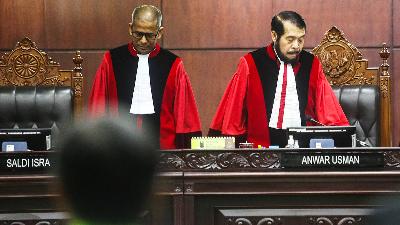
The Constitutional Court reportedly already made a decision in favor of a lawsuit regarding the minimum age requirement for presidential and vice-presidential candidates. The issue is rife with conflicts of interest.

Carbon trading is simply a way to mitigate climate change. The main aims are the energy transition and environmental protection.

The Indonesian Stock Exchange established four carbon trading mechanisms. There were 27 transactions in three schemes in the initial sale.

Presidential candidates’ supporters are creating unfavorable atmosphere in the build-up to the 2024 general elections with them more inclined to speak about rivals’ weaknesses than promoting their champions’ profiles.

The 2024 presidential candidates are competing to garner support from retired generals. This perpetuates the militaristic nature of Indonesian politics.

The plan from the OJK to introduce carbon units as securities could lead to problems. Carbon trading no longer means a reduction in emissions.

The three soldiers who allegedly killed a civilian should be tried in a criminal court. The Military Courts Law needs to be revised.

The OJK regulates carbon exchanges as a securities trading platform. How will the OJK prevent greenwashing in the carbon exchange?

The news in our media is problematic. Why is that?

Voluntary carbon trading has stopped since 2021, due to upside down policies.

Individuals and companies are already implementing carbon trading in the voluntary market. But no price standard has been set.

News summary, from the dismissal on Budiman Sudjatmiko to Food Estate.

With a 1.49 percent annual growth rate, Indonesia's current population of more than 250 million is expected to surpass that of the United States by 2043, possibly becoming the third most populous country after China and India. Despite a national family planning program in place since 1967, Indonesia continues to struggle with various sociocultural constraints that prevent it from becoming more effective and efficient. Such issues emerged during the recent International Conference on Family Planning in Nusa Dua, Bali.
On the sidelines of the biennial conference, Tempo English contributing editor Cory Rogers spoke to Dr. Babatunde Osotimehin, the current executive director of the United Nations Fund for Population (UNFPA). Dr. Osotimehin, a Nigerian national who is serving his second term as head of UNFPA, shared his views on how empowering women through sexual and reproductive health rights is a key to unlocking Indonesia's development potential. Excerpts of the interview:

The Executive Director of United Nations Population Fund (UNFPA), Doctor Babatunde Osotimehin, who visited Jakarta for the World Economic Forum on East Asia last week, led a discussion on how Indonesia can capitalize on its large youth population. Sadika Hamid, Amanda Siddharta and Edward Stephens from Tempo English interviewed Osotimehin, the former Nigerian Health Minister.
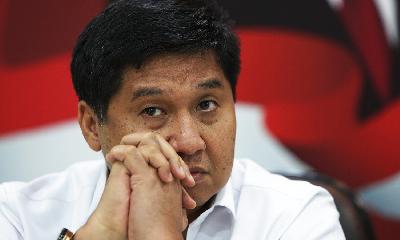
Housing and Settlement Minister Maruarar Sirait on the three million homes project, and his relationships with Jokowi and Prabowo.
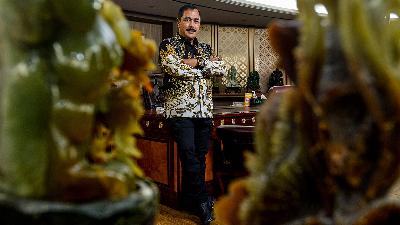
Immigration and Penitentiary Affairs Minister Agus Andrianto on the issues ranging from the inmate escapes from Salemba Detention Center to Mary Jane’s repatriation.
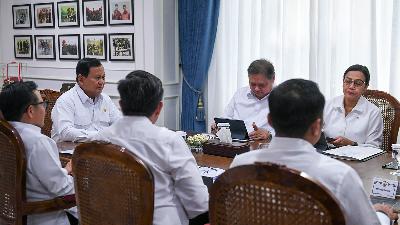
The government finally set the average minimum wage increase at 6.5 percent, following a tug-of-war over the calculation formula after the Constitutional Court annulled the labor cluster in the Job Creation Law.
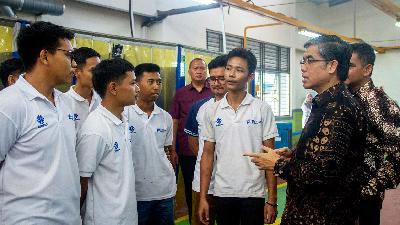
The government repeatedly revised the formula for calculating minimum wage. Policy changes create uncertainty.

Minister Amran Sulaiman recommends changes to regulations on food sector institutions, citing self-sufficiency as the primary reason.

The number of people suspected of protecting online gambling sites increases to 18. Employees of the Communication and Digital Affairs Ministry are involved.

The Communication and Digital Affairs Ministry is tidying up house now that 10 of its employees are accused of participating in online gambling. Their flow of cash is being scrutinized.

One of the suspects of the online gambling case is a regular in the ministers’ social circles, and active in the arts scene.

Minister of Higher Education, Science and Technology Satryo Soemantri Brodjonegoro explains BRIN’s position in the Prabowo government.

The position of BRIN remains uncertain under Prabowo Subianto’s administration. The restructuring of the research agency is hampered by political interests.

Danantara will reduce the authority of the SOEs Minister. Transferring the management of major SOEs will make the Ministry almost powerless.

Interviews with Industry Minister Agus Gumiwang Kartasasmita and Sritex President Commissioner Iwan Setiawan Lukminto on the company’s bailout.

Sri Mulyani and several economic ministers from Jokowi join Prabowo’s cabinet, with encouragement from two former presidents.

Indonesia’s delegation at COP16 CBD in Cali, Colombia, is not led by a minister. Biodiversity funding is at risk of not being agreed upon.

A number of policies from Minister Sakti Wahyu Trenggono are riddled with conflicts of interest. They benefit his son, Indra Trenggono.

Explanations from State Secretary Minister Pratikno and Maritime Affairs and Fisheries Ministry on fishery business and the case of illegal ships in eastern Indonesia.

Minister Sakti Wahyu Trenggono revives a shutdown port. There is indication that the minister’s son is involved in the fisheries business.

Jokowi’s campaign promoting his successes is considered as not portraying actual conditions. Customary communities are among the victims of his administration.

Trade Minister Zulkifli Hasan on the issues ranging from sea sand export policy to Prabowo Subianto’s bureaucratic management style.

There is a strong aroma of politics around the appointment of Saifullah Yusuf as Minister for Social Affairs. President Jokowi should focus on dealing with the problems of poverty.

Just months before the end of his term, Jokowi appointed Bahlil Lahadalia as Energy and Mineral Resources Minister. The position is considered prone to conflicts of interest.
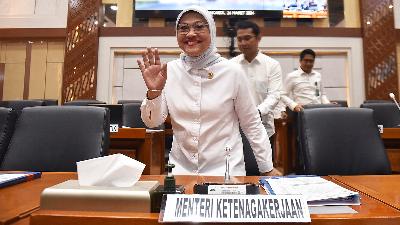
Minister of Manpower Ida Fauziyah explains the issues surrounding the mass layoffs in the industrial sector.

The willingness on the part of Muhammadiyah and Nahdlatul Ulama to accept mining concessions will turn into a problem. This is prone to corruption and could lead to horizontal conflicts.
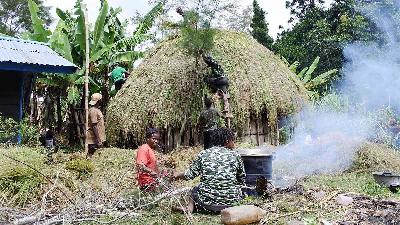
The Papua conflict continues to rage during Jokowi’s administration. The fate of the refugees is neglected.
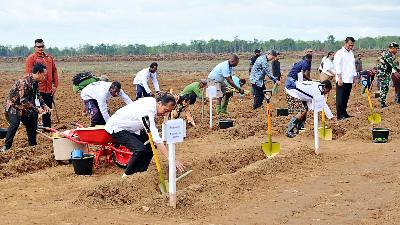
In a decade of Jokowi’s administration, deforestation reached 4.37 million hectares. This is partly attributed to national strategic projects in the food and energy sectors.
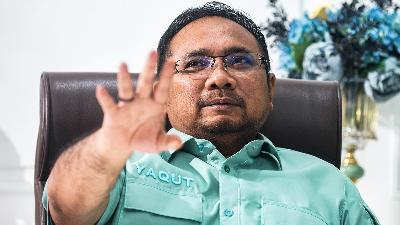
The DPR and the Religious Affairs Minister disagree regarding an additional quota of haj pilgrims. The DPR deems Yaqut Cholil Qoumas has broken the law.

The Ministry of Education, Culture, Research and Technology clarified the matter of the network of professor assessment teams. It is suspected that journals were engineered in addition to suspicious transactions.
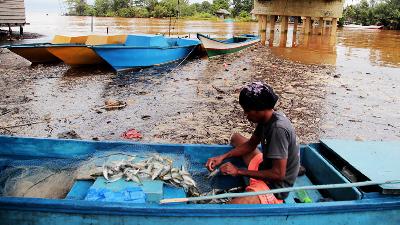
Indigenous people and villagers in Central Halmahera are facing clean water crisis. Community wells and river water are contaminated by nickel mining.

The government grants mining concessions to religious organizations. What are the considerations behind the policy?
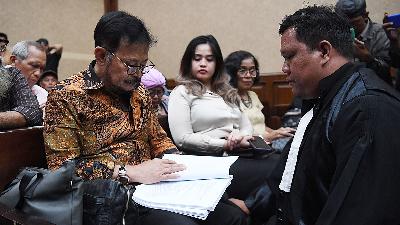
Agriculture Ministry high-ranking officials routinely took up collections to raise money for Syahrul Yasin Limpo from 2020 to 2023. They often used the treasurer’s cash account.

Prabowo Subianto intends to form a cabinet of 40 ministers. This will result in a bloated bureaucracy and wasted public money.

Illegal tin mining is rampant in the waters of Bangka Belitung. The environmental damage is much greater than investigators estimated.
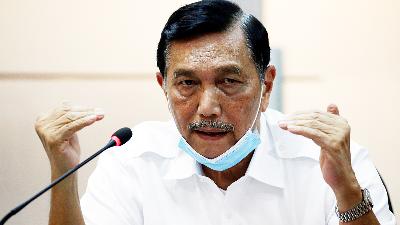
An interview with Coordinating Minister for Maritime Affairs and Investment Luhut Pandjaitan on mining permits for mass organizations and his relationship with Bahlil Lahadalia.
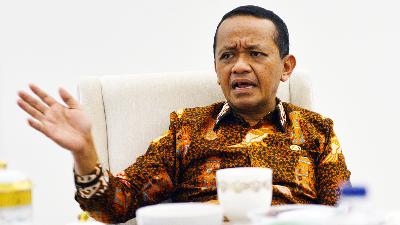
Interview with Minister of Investment Bahlil Lahadalia about mining business permits IUP for mass organizations, and the debate with Luhut Pandjaitan.
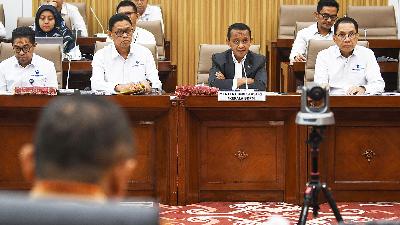
The role of Bahlil Lahadalia in revoking mining business licenses draws attention of the House of Representatives and civil society groups, amidst concerns of possible licensing corruption.
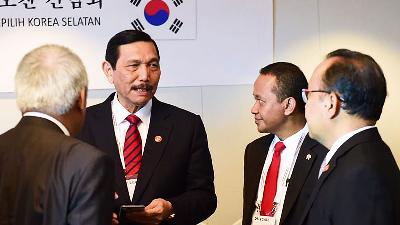
Luhut Pandjaitan and Bahlil Lahadalia discussed the allocation of mining permits. For the sake of delivering Jokowi’s promise.

The legalization of illegal mining and oil palm plantations in forest areas is rife with irregularities. This is plundering of natural resources using the Job Creation Law.
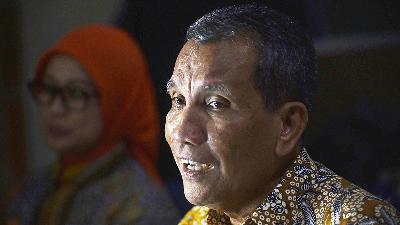
Corruption Eradication Commission’s Deputy for Prevention, Pahala Nainggolan, on the mechanism of administrative sanctions for companies mining illegally in forest areas.

Administrative fines for whitewashing illegal mining are deemed ineffective to battle environmental damage. The fines are also vulnerable to corruption.

Bahlil Lahadalia explains the uproar over the revocation of mining permits as well as alleged extortion of money and shares in exchange for reinstatement of the permits.
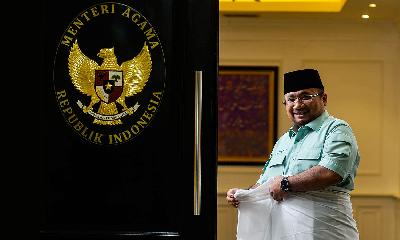
Religious Affairs Minister Yaqut Cholil Qoumas explains the regulation regarding the use of loudspeakers in mosques and outlines plans to ensure that religious affairs offices provide services for all faiths.

The declining trade surplus is the culprit of the rupiah’s weakening recently. Partly, it is the fruit of the government’s own doing.

The Attorney General's Office is investigating alleged corruption over tin mining permits in Bangka Belitung. The investigation must also reveal the backers.

Three Timah directors become suspects in a tin mining corruption case in the Bangka Belitung Islands. Estimated losses sustained by the state amount to Rp217 trillion.

Investment Minister Bahlil Lahadalia has revoked mining permits and then reissued them. There are indications of illegal buying and selling of permits.

Deforestation and illegal nickel mining continues in Halmahera. It became widespread after Minister Bahlil revoked some mining licenses.

Allegedly, there are tributes to Investment Minister Bahlil Lahadalia. This coverage is supported by International Media Support
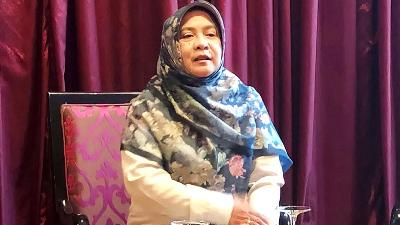
An interview with the Ministry of Environment and Forestry’s Director-General of Climate Change Mitigation Laksmi Dhewanti about the REDD+ program.
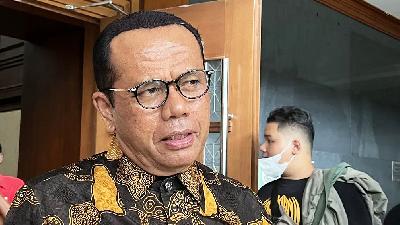
An interview with Juniver Girsang, the lawyer of Fajar Bhakti Lintas Nusantara directors, on the role of the Coordinating Minister for Maritime Affairs and Investment Luhut Pandjaitan in the internal dispute of a nickel company.

Ministry of Religious Affairs and Ministry of Agriculture’s right of reply on support for presidential candidates.

What are the functions of the cabinet minister’s special staff?

The Palestinian homeland neither originates from the distant past, nor is it a hope for the future.

A number of President Joko Widodo’s ministers campaign for their respective political parties ahead of the 2024 elections. How to scrutinize a possible misuse of state facilities?

Helmut Hermawan, who admitted to bribing Deputy Justice and Human Rights Minister Eddy Hiariej, is indicted in 11 criminal cases. It is the fallout from fighting over company stocks.

The water of the Sagea River in North Maluku is polluted by nickel mining. The environmental danger is becoming more real as the price of nickel on world markets plummets.

Sagea River is polluted as a result of deforestation by a number of nickel mining companies. Its water is no longer safe for drinking.

Syahrul Yasin Limpo is the sixth of Jokowi's ministers to be caught up in a corruption case. This is a sign of failure in the recruitment of cabinet members.

The appointment of the Environment Ministry Director-General of Planning appears to have been made based on a forged signature. His track record is also controversial.
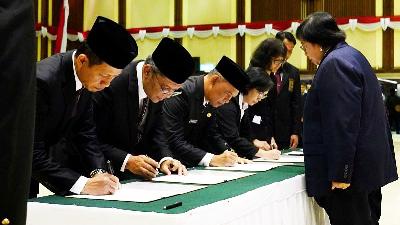
The signature of Sarwono Kusumaatmadja was used to validate the names of candidates for echelon-I officials of the Environment and Forestry Ministry. The announcement letter was issued when he was hospitalized in Malaysia.

Former government employees at the Foreign Affairs Ministry are demanding the disbursement of unpaid wages. How did it come to happen?

The National Genome Center set up in 2018 is gone. Does it change into the Biomedical and Genome Science Initiative of the Health Ministry?

A former campaign volunteer for President Jokowi is named a suspect in relation to an illegal nickel mining worth Rp5.7 trillion. A crooked syndicate that must be investigated.

Businessman Windu Aji Sutanto is caught up in a case of illegal nickel mining at the Mandiodo Block. He is known as a broker for arranging the outcomes of legal cases.

The mining downstreaming policy gives rise to issues. Mineral processing has not been optimal without processed materials being absorbed by manufacturing industries.

Minister Mahfud Md’s statement regarding a loan claim by Jusuf Hamka could be considered influence peddling. This is treading on very thin ice.

Through people close to him, Agriculture Minister Syahrul Yasin Limpo allegedly received tributes to fund his personal needs.

Sandiaga Uno and Erick Thohir are cozying up to political parties. Even opposition parties have been lobbied to support the current administration.

Small islands face the threat of disappearing under the water as a result of the sand mining. This worsens the abrasion caused by rising sea levels.

Sand mining exacerbates threats for smaller islands. It creates environmental damage and less catch for fishermen.

Police seized a Lamborghini Aventador with a fake license plate from a Russian tourist. The car disappeared twice.
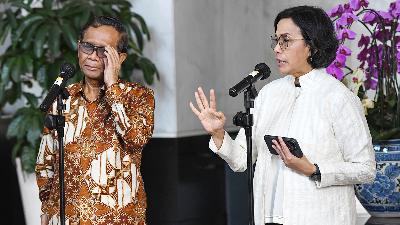
A summary of the week’s news on the huge transactions discovered in the finance ministry, the transfer of the Haris-Fatia case to the prosecutor's office, and the verdict received by the Kanjuruhan Tragedy defendants.

An investigation by Tempo found illegal nickel mining by people claiming to be close to the authority.
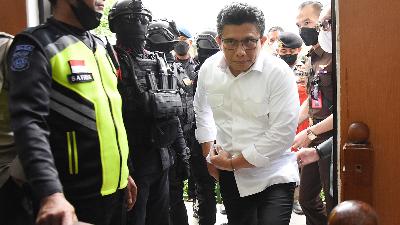
Ferdy Sambo, who is currently facing trial in the case of the killing of his adjutant, is suspected to be connected to an illegal mining bribery case involving Ismail Bolong.

Discussions to decide the provincial minimum wage for 2023 get hot. Workers are lobbying the president to issue a discretion, while employers are suing manpower minister regulation.

Minister Erick Thohir promises to ban former corruptors from becoming directors of state-owned enterprises. Mere gimmicks are inadequate for a comprehensive cleanup of state-owned enterprises.

Nadiem Makarim has outside teams attached to some directorate-general offices at the Ministry of Education, Culture, Research and Technology. Consisting of about 400 people, these shadow organizations create waves inside the ministry.

PT PNM put 100 Jakarta Branch Account Officers as training participants so they can be more aware and obey the traffic rules. #Infotempo

Barring the entry of five foreign researchers underlines the anti-science and anti-criticism stance of Environment and Forestry Minister Siti Nurbaya. This is a danger for the environment.
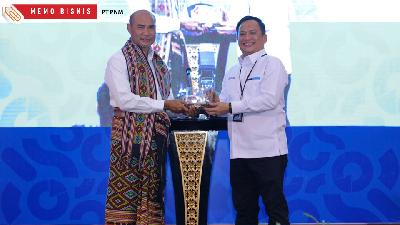
The training and provision of NIB is one of the supports for MSMEs in advancing the people's economy. #Infotempo

The Agriculture Ministry has a letter on the right of reply to Tempo’s report about the procurement of the foot-and-mouth disease vaccines.

Through this training and mentoring, PNM builds emotional relationships and provides support to customer assistants. #Infotempo

Through this training and mentoring, PNM builds emotional relationships and provides support to customer assitants. #Infotempo
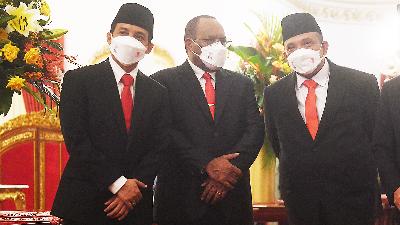
President Joko Widodo again chooses deputy ministers from political parties. It is part of his accommodation politics.

The attorney general names Lin Che Wei the fifth suspect in the graft case surrounding the export of crude palm oil and its derivatives. Investigators are also looking into Trade Minister Muhammad Lutfi’s role in the affair.

The police are investigating Rudy Salim following videos of the sale of a Lamborghini Huracán to a binary option fraud suspect, Indra Kenz. The car should not have been sold because it was imported using the ATA Carnet facility.

Russian Ambassador to Indonesia, Lyudmila Vorobieva, claims that the assault on Ukraine is carried out to prevent the country from being used as a weapon to attack Russia.
Meanwhile, Ukrainian Ambassador to Indonesia, Vasyl Hamianin points out that it is wrong for Russia to use such fear as an excuse to invade Ukraine and kill civilians in the process.

Letters on a note to Minister Nadiem Makarim, digital detoxification and the US-China tension.

The inspectorate-general at the ministry of education, culture, research and technology backs the accusations of plagiarism against the rector of the Semarang State University. This is a stain on the face of the education system.

Local communities protested against Aneka Tambang for polluting the mangrove area in Tanjung Moronopo, East Halmahera North Maluku, with waste from its mining operation. The mine is changing both the waters and the lives of fishermen.

Objection of the Ministry of Villages Regarding a Government Official Suspected of Brokering Personnel Recruitment.
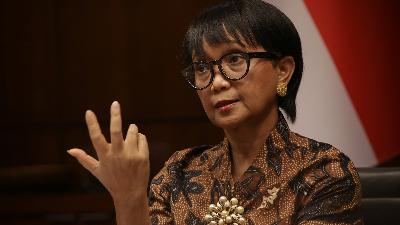
ASEAN leaders finally came to a number of consensus, such as finding a peaceful solution through dialogue and sending a special envoy to Myanmar. Further steps are still needed. Tempo interviewed Indonesian Minister of Foreign Affairs, Retno marsudi.

Ministry of Villages, Disadvantaged Regions, and Transmigration writes a response to the article titled Fees for Positions in Kalibata in Tempo English April 12-18, 2021 issue.

Taman Mini reflects the view that life is only the status quo—as though in every phenomena, every difference, there is only the everlasting.
Independent journalism needs public support. By subscribing to Tempo, you will contribute to our ongoing efforts to produce accurate, in-depth and reliable information. We believe that you and everyone else can make all the right decisions if you receive correct and complete information. For this reason, since its establishment on March 6, 1971, Tempo has been and will always be committed to hard-hitting investigative journalism. For the public and the Republic.